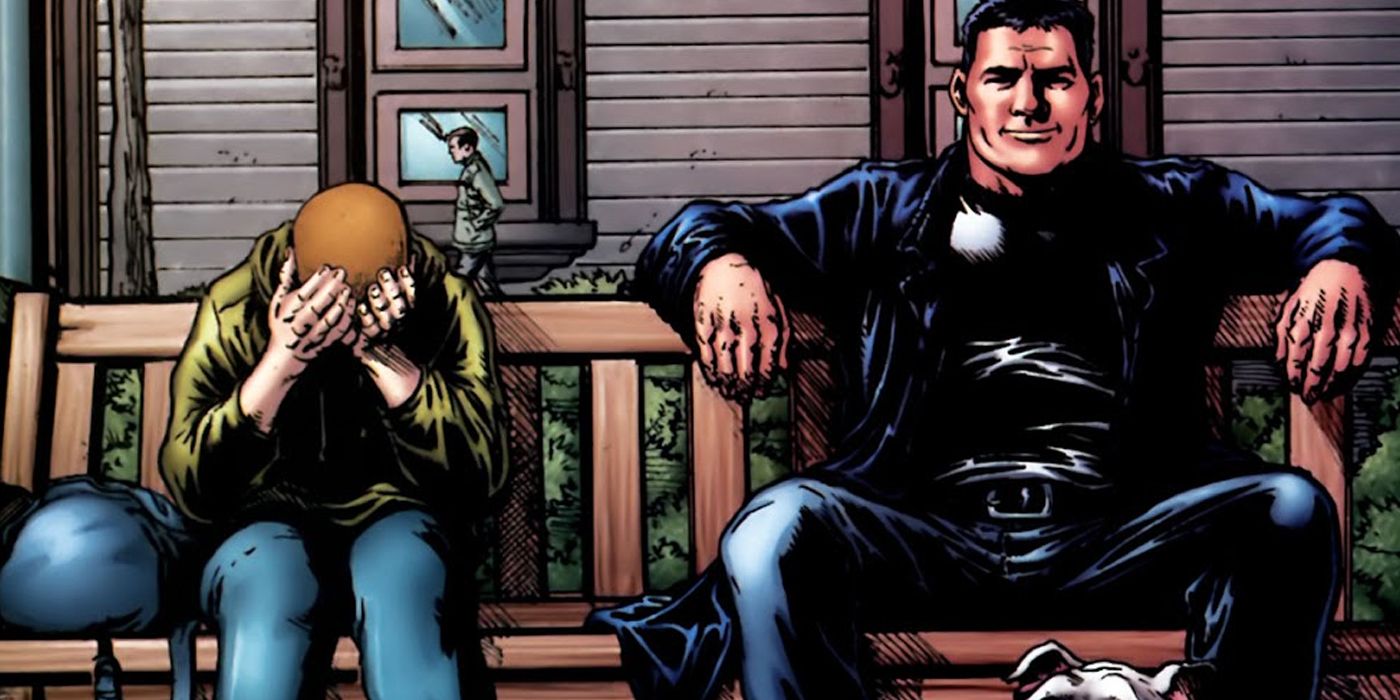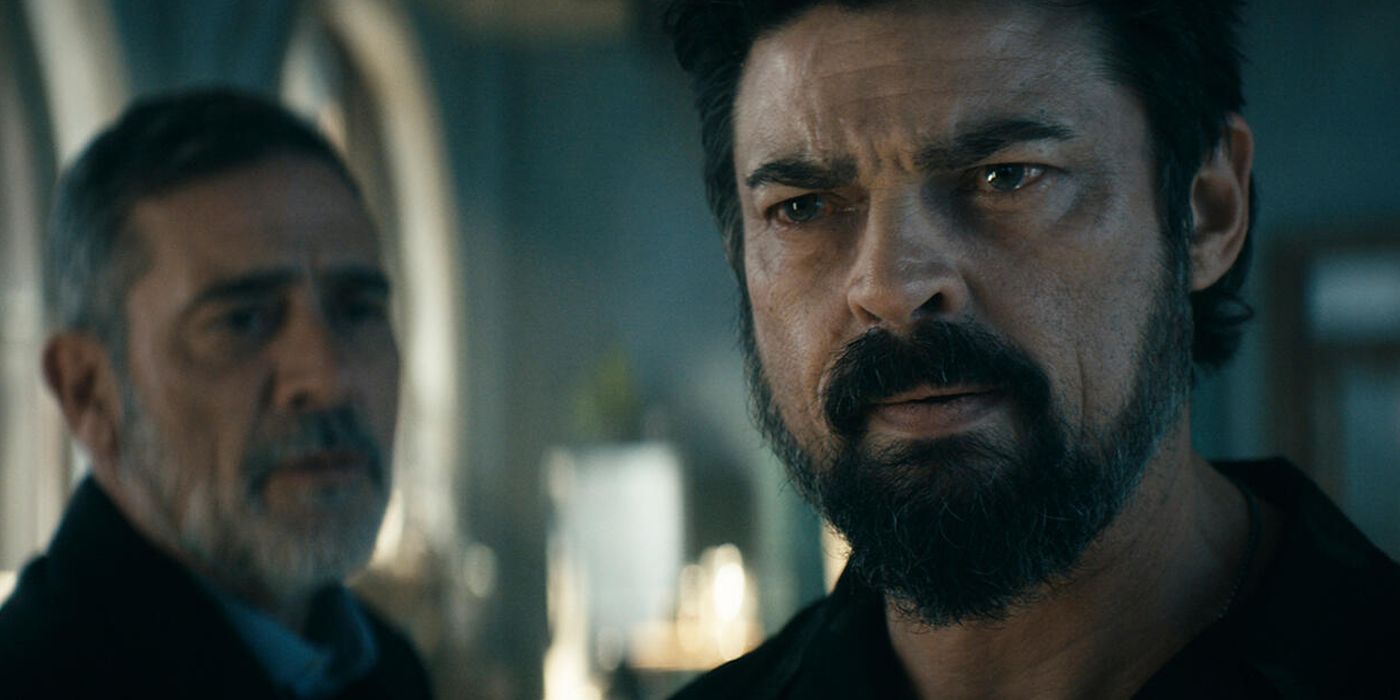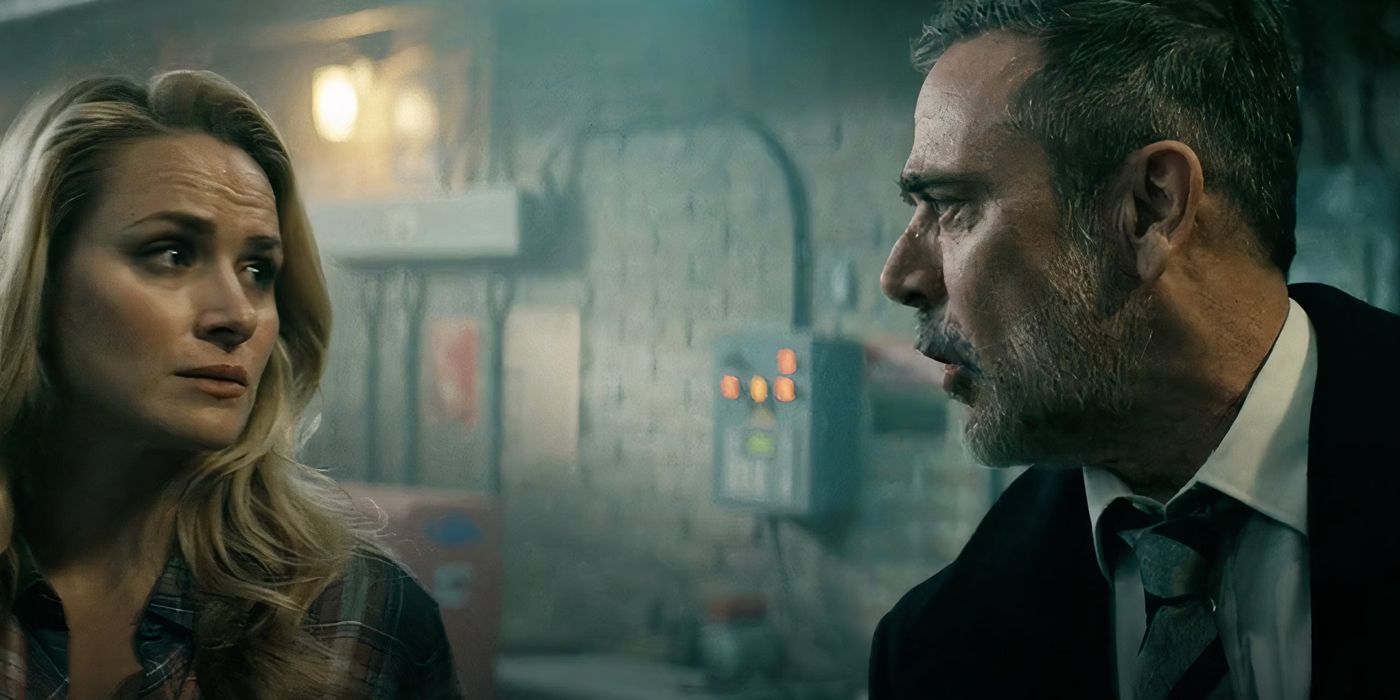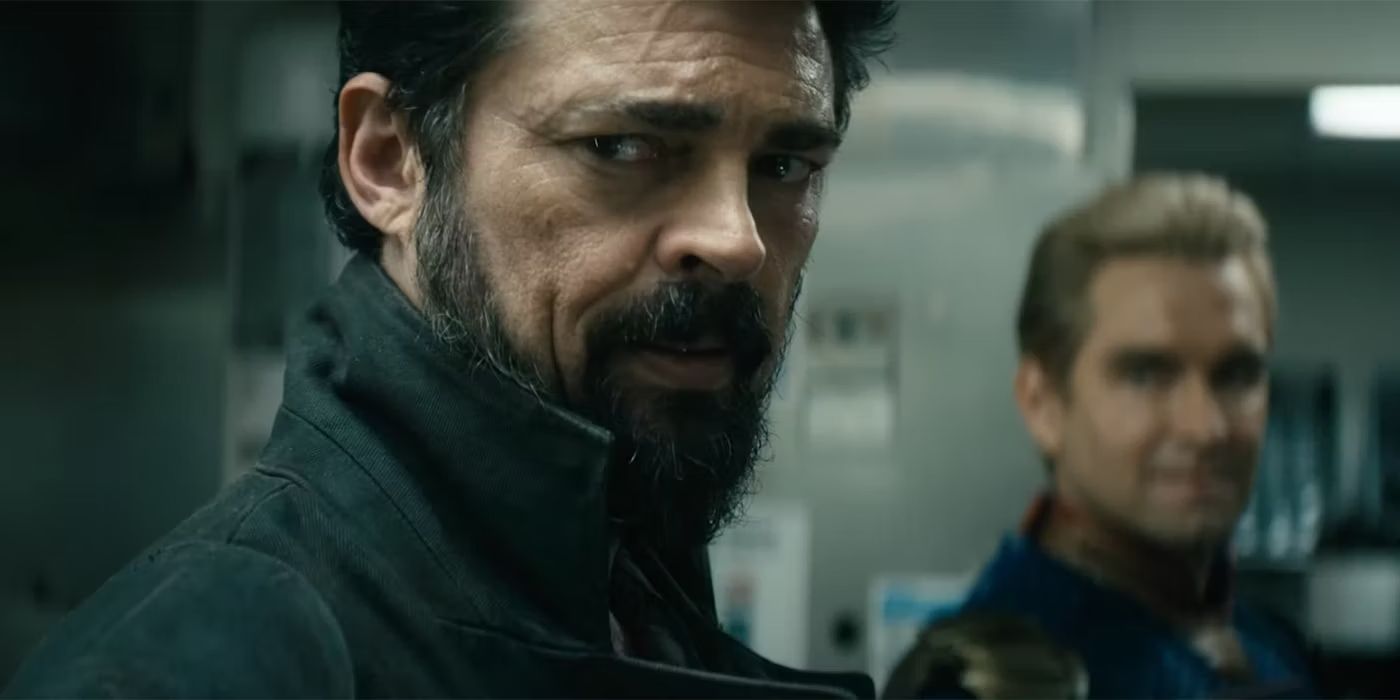The Boys’ fourth and penultimate season set up the dark superhero series’ endgame. On one end, Homelander got everything he thought he wanted. Thanks to Sage’s machinations, Homelander is now the ruler of the United States of America and is free to reshape the country in his image. Backing him up are his loyal supes, right-wing politicians, and the establishment. On the other end are the Boys, just hit rock bottom following Billy Butcher’s vicious murder of Vice President-elect Victoria Neuman and were all arrested. Butcher, now fully under Joe Kessler’s influence, is one of only two members to escape. Worse, Butcher has a supe-𝓀𝒾𝓁𝓁ing virus that he intends to unleash on Homelander and anyone with a trace of Compound-V in their bloodstream, whether they’re allied with the super-powered tyrant or not.
The Boys Comics Sided With Billy Butcher’s Cruelty
The Comics Valorized Billy Butcher as a “Necessary Evil”

| The Boys’ Critical Reception, According to Goodreads | ||
|---|---|---|
| Title | Number of Volumes | Goodreads Score |
| The Boys (2006-2012) | 12 | 4.03/5 (averaged) |
| The Boys: Dear Becky (2020) | 1 | 3.34/5 |
One of the biggest issues with The Boys’ comics was that the supes were never really a threat. Even before Homelander’s coup was thwarted almost immediately, the supes only amounted to cheap celebrity parodies and colorful punching bags for the Boys to beat up and scold. This was due to the comics’ darkly realistic tone plus Ennis’ palpable hatred of them. The comics were really more of his outlet to vicariously slaughter superheroes and call out every perceived slight than a proper genre deconstruction. Since he couldn’t care less about the supes, Ennis never shied away from building up Butcher to be the comics’ real antagonist. Butcher swearing to 𝓀𝒾𝓁𝓁 every living supe — including the Boys and himself — wasn’t an empty promise. The lethally modified Compound-V the Boys found during their mission to Russia only made Butcher’s once-impossible ambitions scarily feasible. Mother’s Milk, Frenchie and The Female died trying to stop Butcher, leaving “Wee” Hughie Campbell to finish the job.
The Boys Series Understood That Billy Butcher Was an Irredeemable Monster

| The Boys’ Critical Reception, According to Rotten Tomatoes | ||
|---|---|---|
| Title | Number of Episodes | Rotten Tomatoes Score |
| The Boys (Season 1-4) | 32 |
|
| The Boys Presents: Diabolical | 8 |
|
| Gen V | 8 |
|
Conversely, Butcher’s live-action version was anything but the epitome of juvenile masculinity and nihilism he was in the comics. Though they shared the same broad strokes, the series’ Butcher was more human. Where the comics’ Butcher was a glorified monster, the character brought to life by Karl Urban was a pained and tortured man. The latter genuinely wanted to connect with others (especially Hughie and Ryan), but he didn’t know how due to his past traumas and unbreakable toxic habits. His desire to protect the world from tyrannical supes was sincere, but the temptation to cross moral lines and be just as evil as they always loomed over him. In brief, the comics’ Butcher was a monster from the beginning, while his live-action counterpart was a more complex anti-hero who fought tooth and nail to maintain his humanity.
Billy Butcher’s Villainous Turn Was More Tragic & Fitting in the Series
| The Boys Season 4 Episodes, Reviewed by CBR | ||
|---|---|---|
| Episode Number | Episode Title | CBR’s Score |
| 1 | Department of Dirty Tricks | 9/10 |
| 2 | Life Among the Septics | 8/10 |
| 3 | We’ll Keep the Red Flag Flying Here | 9/10 |
| 4 | Wisdom of the Ages | 8/10 |
| 5 | Beware the Jabberwock, My Son | 9/10 |
| 6 | Dirty Business | 9//10 |
| 7 | The Insider | 7/10 |
| 8 | Season 4 Finale | 9/10 |
By humanizing Butcher and having him gradually devolve into a remorseless monster instead of being one from the start, Prime Video’s The Boys undid the comics’ biggest flaw. Specifically, putting Butcher on a pedestal. Butcher was not someone to be idolized, if even in a twisted way. Despite its flashes of self-awareness, the comics never committed to condemning Butcher because he was always heralded as the biggest badass in the room. This was especially true whenever he faced supes who Ennis wrote to be as pathetic as possible. At best, the belated epilogue The Boys: Dear Becky addressed this, but it still ended with Hughie begrudgingly honoring Butcher’s memory.

To be fair, this problem is inherent to many stories about anti-heroes. Edgy anti-heroes get a free pass to be downright evil because their creators and fans erroneously equate amorality and hatred to maturity. Said anti-heroes only existed to symbolically tear down whatever character archetype was most popular at the moment (i.e., superheroes), not to tell a dark yet interesting story. The comics’ Butcher was the pinnacle of this tiresome and insufferable trend, and he wouldn’t have worked in live-action. Even ignoring his excessive edge, he would’ve been a one-dimensional power fantasy who faced little to no challenges. Worse, he had no dynamic arc to speak of. From the first issue to the last, he was an unstoppable brute whose plans always worked as intended. Butcher’s original flat characterization was only one of the many reasons why The Boys’ comics don’t hold up today, even if they have some salient points and ideas.

This is why the live-action Butcher is superior to his comics counterpart. Not only did Season 4 set up his evil arc for Season 5 far better than the comics, but it also did a great job of examining his character. Butcher’s intended worldwide mass murder was the series’ payout for his gradual decline into unbridled evil and failed struggle with his demons. Butcher’s betrayal of the Boys and his last encounter with Hughie are more heartbreaking than they were in the comics since he truly tried but eventually gave up on connecting with them throughout the series. Hughie, in particular, recognized Butcher’s humanity, something others and Butcher himself ignored. Despite his faults, the series’ Butcher was more honest and human than his comics’ version, which made his villainous turn all the more heartbreaking and horrifying. He could’ve chosen not to become a monster, but he willingly doomed himself and countless others the moment he gave in to his toxic masculinity and his comic self’s darkness.





